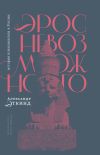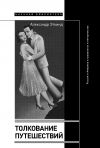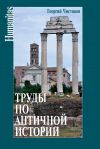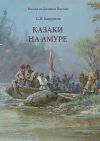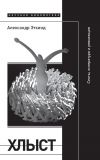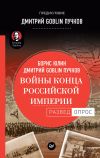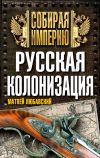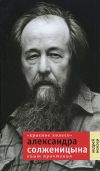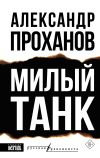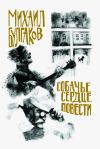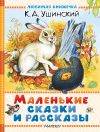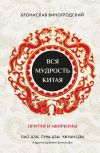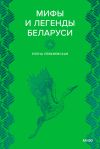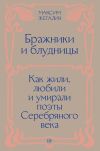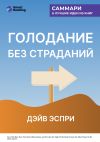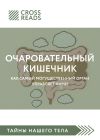Текст книги "Внутренняя колонизация. Имперский опыт России"
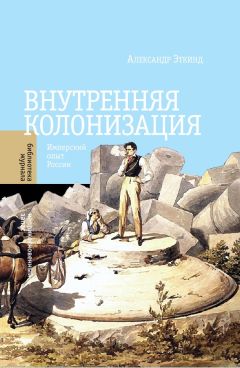
Автор книги: Александр Эткинд
Жанр: Зарубежная образовательная литература, Наука и Образование
Возрастные ограничения: +18
сообщить о неприемлемом содержимом
Текущая страница: 28 (всего у книги 30 страниц)
Чаадаев, Петр 1914. Сочинения и письма / Ред. М. Гершензон. М.
Чернов, Виктор 1922. Записки социалиста-революционера. Т. 1. Берлин: Гржебин.
Чичерин, Борис 1856. Обзор исторического развития сельской общины в России // Русский вестник, 4.
Чичерин, Борис 1990. Воспоминания. М.: Правда.
Шаров, Владимир 2003. Воскресение Лазаря. М.: Вагриус.
Шелгунов, Николай, Михайлов, Михаил 1958. К молодому поколению [1861] // Каратаев Н. (ред.) Народническая экономическая литература. М.
Шлецер, Август 1809. Нестор. СПб.
Шумахер, А.Д. 1899. Поздние воспоминания о давно минувших временах // Вестник Европы, 3: 89 – 128.
Щапов, Афанасий 1862. Земство и раскол. СПб.
Щапов, Афанасий 1906. Сочинения. СПб.
Щапов, Афанасий 1923. Речь после панихиды по убитым в Бездне крестьянам // Красный архив, 4.
Эйдельман, Натан 1965. Павел Иванович Бахметьев // Нечкина М.И. (ред.). Революционная ситуация в России в 1859–1861. Т. 4. М.: Наука, 387–398.
Эйдельман, Натан 1993. «Где и что Липранди?» // Эйдельман, Натан. Из потаенной истории России XVIII–XIX веков. М.: Высшая школа, 429–464.
Эткинд, Александр 1996. Русские секты и советский коммунизм: Проект Владимира Бонч-Бруевича // Минувшее, 19: 275–319.
Эткинд, Александр 1998. Хлыст. Секты, литература и революция. М.: Новое литературное обозрение.
Эткинд, Александр 2001a. Фуко и имперская Россия: Дисциплинарные практики в условиях внутренней колонизации // Хархордин, Олег (ред.) Фуко и Россия. СПб.: Европейский университет, 166–191.
Эткинд, Александр 2001b. Толкование путешествий. Россия и Америка в травелогах и интертекстах. М.: Новое литературное обозрение.
Эткинд, Александр 2002. Бремя бритого человека, или Внутренняя колонизация России // Ab Imperio (Казань), 1: 265–299.
Юль, Юст 1899. Записки датского посланника при Петре Великом. М.
Ядринцев, Николай 2003. Сибирь как колония. Новосибирск: Сибирский хронограф.
Ямпольский, Владимир 1994. Из истории германской геополитики // Россия-XXI, 6/7: 158–168.
Ястребцов, Иван 1833. О системе наук, приличных в наше время детям. М.
Abrams, Ì.H. 1953. The Mirror and the Lamp: Romantic Theory and the Critical Tradition. New York: Oxford University Press.
Achebe, Chinua 2001. “An Image of Africa: Racism in Conrad’s Heart of Darkness,” in Vincent B. Leitch (ed.), The Norton Anthology of Theory and Criticism. New York: Norton.
Agamben, Giorgio 1998. Homo Sacer. Sovereign Power and Bare Life. Stanford: Stanford University Press.
Anderson, Benedict 1991. Imagined Communities. London; New York: Verso.
Anderson, F. 2000. Crucible of War: The Seven Years War and the Fate of Empire in British North America. New York: Vintage.
Arendt, Hannah 1966. Origins of Totalitarianism. New York: Harcourt.
Arendt, Hannah 1968. Men in Dark Times. Orlando, FL: Harcourt.
Arendt, Hannah 1970. On Violence. Orlando, FL: Harcourt.
Arneil, Barbara 1996. John Locke and America: The Defense of English Colonialism. Oxford: Oxford University Press.
Ashcroft, Bill, and Paul Ahluwalia 1999. Edward Said. The Paradox of Identity. London: Routledge.
Atkinson, D. 1990. “Egalitarianism and the Commune,” in R.P. Bartlett (ed.), Land Commune and Peasant Community in Russia. Basingstoke: Macmillan.
Balibar, E. 1999. “Is There a ‘Neo-Racism’?” in E. Balibar and I. Wallerstein, Race, Nation, Class: Ambiguous Identities, trans. Chris Turner. London: Verso, 17–28.
Baranowski, Shelley 2011. Nazi Empire. German Colonialism and Imperialism from Bismarck to Hitler. Cambridge: Cambridge University Press.
Barnes, Hugh 2005. Gannibal: The Moor of Petersburg. New York: Profile Books.
Baron, Samuel H. 1953. Plekbanov: The Father of Russian Marxism. Stanford: Stanford University Press.
Baron, Samuel H. 1958. “Plekhanov’s Russia: The Impact of the West upon an ‘Oriental’ Society,” Journal of the History of Ideas, 19/3: 388–404.
Baron, Samuel H. 1995. Plekhanov in Russian History and Soviet Historiography. Pittsburgh: University of Pittsburgh Press.
Barrett, Thomas 1999. At the Edge of Empire: The Terek Cossacks and the North Caucasus Frontier. Boulder, CO: Westview.
Bartlett, Robert 1993. The Making of Europe. Conquest, Colonization, and Cultural Change. London: Penguin.
Bartlett, Roger 1979. Human Capital. The Settlement of Foreigners in Russia, 1762–1804. Cambridge: Cambridge University Press.
Bassin, Mark 1993. “Turner, Solov’ev, and the ‘Frontier Hypothesis’: The Nationalist Signification of Open Spaces,” Journal of Modern History, 65: 473–511.
Bassin, Mark 1999. Imperial Visions: Nationalist Imagination and Geographic Expansion in the Russian Far East, 1840–1865. Cambridge: Cambridge University Press.
Bates, Robert H. 2001. Prosperity and Violence: The Political Economy of Development. New York: Norton.
Bauman, Whitney 2009. Theology, Creation, and Environmental Ethics: From Creatio Ex Nihilo to Terra Nullius. London: Routledge.
Beissinger, Mark 2006. “Soviet Empire as ‘Family Resemblance’,” Slavic Review, 65/2: 294–303.
Benes, Tuska 2004. “Comparative Linguistics as Ethnology. In Search of Indo-Germans in Central Asia”, Comparative Studies of South Asia, Africa, and the Middle East, 24/2: 117–132.
Benjamin, Walter 1968. “The Storyteller. Reflections on the Works of Nikolai Leskov,” in his Essays and Reflections, ed. Hannah Arendt. New York: Schocken, 83 – 110.
Benjamin, Walter 1999. “On the Present Situation in Russian Film,” in his Selected Writings, vol. 2, pt. 1 (1927–1930). Cambridge, MA: Belknap, 12–15.
Bentham, Jeremy 1995. The Panopticon Writings, ed. Miran Bozovic. London: Verso.
Beratz, Gottlieb 1991. The German Colonies on the Lower Volga. Lincoln, NE: American Historical Society of Germans from Russia.
Berens, Reinhold 1812. Geschichte der seit hundert und fünfzig Jahren in Riga einheimischen Familie Berens aus Rostock. Riga: Julius Muller Verlag.
Berlin, Isaiah 1978. “A Remarkable Decade,” in his Russian Thinkers. New York: Penguin.
Berlin, Isaiah 1996. “Kant as an Unfamiliar Source of Nationalism,” in his Sense of Reality. London: Chatto.
Berlin, Isaiah 2000. Three Critics of the Enlightenment. London: Pimlico.
Berman, Russell A. 1998. Enlightenment or Empire: Colonial Discourse in German Culture. Lincoln: University of Nebraska Press.
Bethea, David 1998. “Slavic Gift Giving: The Poet in History and Pushkin’s ‘The Captain’s Daughter’,” in Monika Greenleaf and Stephen Moeller-Sally (eds.), Russian Subjects: Empire, Nation, and the Culture of the Golden Age. Evanston, IL: Northwestern University Press, 259–276.
Betz, John 2008. After Enlightenment: The Post-Secular Vision of J.G. Hamann. Oxford: Wiley-Blackwell.
Bhabha, Homi 1994. The Location of Culture. London: Routledge.
Bideleux, Robert, and Ian Jeffries 2007. A History of Eastern Europe: Crisis and Change. London: Routledge.
Billington, James H. 1966. The Icon and the Axe. New York: Vintage.
Black, J.L. 1986. G. – F. Muller and the Imperial Russian Academy. Kingston: McGill University Press.
Blackbourn, David 2007. The Conquest of Nature. Water, Landscape, and the Making of Modern Germany. London: Pimlico.
Blackbourn, David 2009. “The Conquest of Nature and the Mystique of the Eastern Frontier in Nazi Germany,” in Robert L. Nelson (ed.), Germans, Poland, and Colonial Expansion to the East. London: Palgrave, 141–170.
Blauner, Robert 1969. “Internal Colonialism and Ghetto Revolt,” Social Problems,16/4: 393–408.
Bockstoce, John R. 2009. Furs and Frontiers in the Far North. New Haven, CT: Yale University Press.
Boeck, Brian J. 2007. “Containment vs. Colonization. Muscovite Approaches to Settling the Steppe,” in Nicholas B. Breyfogle, Abby Schrader, and William Sunderland (eds.), Peopling the Russian Periphery. Borderland Colonization in Eurasian History. London: Routledge, 41–60.
Bojanowska, Edyta M. 2007. Nikolai Gogol. Between Ukrainian and Russian Nationalism. Cambridge, MA: Harvard University Press.
Boucher, David 2010. “The Law of Nations and the Doctrine of Terra Nulius,” in Olaf Asbach and Peter Schroder (eds.), War, the State and International Law in Seventeenth-Century Europe. London: Ashgate, 63–82.
Boym, Svetlana 2010. Another Freedom. The Alternative History of an Idea. Chicago: University of Chicago Press.
Braudel, Fernand 1967. Capitalism and Material Life, 1400–1800, trans. Miriam Kochan. London: Weidenfeld.
Breshkovskaia, E.K. 1931. Hidden Springs of the Russian Revolution. Stanford: Stanford University Press.
Breyfogle, Nicolas B. 2005. Heretics and Colonizers. Forging Russia’s Empire in the South Caucasus. Ithaca: Cornell University Press.
Brooks, Peter. 1996. “ ‘An Unreadable Report.’ Conrad’s Heart of Darkness,” in Elaine Jordan (ed.), Joseph Conrad. London: Macmillan, 67–86.
Brower, Daniel R., and Edward J. Lazzerini (eds.) 1997. Russia’s Orient. Imperial Borderlands and Peoples. Bloomington: Indiana University Press.
Brubaker, Rogers 1992. Citizenship and Nationhood in France and Germany. Cambridge, MA: Harvard University Press.
Buchowski, Michal 2006. “The Specter of Orientalism in Europe: From Exotic Other to Stigmatized Brother,” Anthropological Quarterly, 79/3: 463–482.
Burbank, Jane, and Frederick Cooper 2010. Empires in World History. Princeton: Princeton University Press.
Burbank, Jane, and David Ransel (eds.) 1998. Imperial Russia. New Histories for the Empire. Bloomington: Indiana University Press.
Bushkovitch, Paul 1980. The Merchants of Moscow. 1580–1650. Cambridge: Cambridge University Press.
Butterfield, Herbert 1955. Man on His Past: The Study of the History of Historical Scholarship. Cambridge: Cambridge University Press.
Calvert, Peter 2001. “Internal Colonisation, Development and Environment,” Third World Quarterly, 22/1: 51–63.
Cannadine, David 2001. Ornamentalism. How the British See Their Empire. Oxford: Oxford University Press.
Césaire, Aimé1955. Discours sur le colonialisme/ Paris: éditions Présence Africaine.
Chari, Sharad, and Catherine Verdery 2009. “Thinking between the Posts: Postcolonialism, Postsocialism, and Ethnography after the Cold War,” Comparative Studies in Society and History, 51/1: 1 – 29.
Chatterjee, Choi, and Karen Petrone 2008. “Models of Selfhood and Subjectivity: The Soviet Case in Historical Perspective,” Slavic Review, 67/4: 967–986.
Chatterjee, Partha 1993. The Nation and its Fragments. Colonial and Post-Colonial Histories. Princeton: Princeton University Press.
Christie, Ian R. 1993. The Benthams in Russia. Oxford: Berg.
Clay, J. Eugene 2001. “Orthodox Missionaries and ‘Orthodox Heretics’ in Russia, 1886–1917,” in Robert Geraci and Michael Khodarkovsky (eds.), Of Religion and Empire: Missions, Conversions, and Tolerance in Tsarist Russia. Ithaca: Cornell University Press.
Clement, Catherine 1988. Opera. The Undoing of Women, trans. Betsy Wing. Minneapolis: University of Minnesota Press.
Clifford, James 1988. The Predicament of Culture. Twentieth-Century Ethnography, Literature, and Art. Cambridge, MA: Harvard University Press.
Coates, Paul 1991. The Gorgon’s Gaze. German Cinema, Expressionism, and the Image of Horror. Cambridge: Cambridge University Press.
Collier, Stephen, Alex Cooley, Alexander Etkind, Bruce Grant, Jon Kyst, Harriet Murav, Marc Nichanian, and Gayatri Chakravorty Spivak 2003. “Empire, Union, Center, Satellite: Post-Colonial Theory and Slavic Studies,” Ulbandus. The Slavic Review of Columbia University, 7.
Condee, Nancy 1995. “The Relentless Cult of Novelty,” in Daniel Orlovsky (ed.), Beyond Soviet Studies. Washington, DC: Woodrow Wilson Center Press, 289–304.
Condee, Nancy 2006. “Drowning or Waving? Some Remarks on Russian Cultural Studies,” The Slavic and East European Journal, 50/1: 197–203.
Condee, Nancy 2008. “From Emigration to E-Migration: Contemporaneity and the Former Second World,” in Terry Smith, Okwui Enwezor, and Nancy Condee (eds.), Antinomies of Art and Culture. Modernity, Postmodernity, and Contemporaneity. Durham, NC: Duke University Press, 235–249.
Condee, Nancy 2009. The Imperial Trace: Recent Russian Cinema. Oxford: Oxford University Press.
Confino, Michael 1963. Domaines et seigneurs en Russie vers la fin du XVIIIe sie`cle. Paris: Institut d’Etudes slaves de l’Universite de Paris.
Confino, Michael 2008. “The soslovie (estate) paradigm,” Cahiers du monde russe, 49/4: 681–704.
Conrad, Joseph 1919. A Personal Record. London: Dent.
Conrad, Joseph 1921. “Crime of Partition,” in his Notes on Life and Letters. London: Dent.
Conrad, Joseph 1926. “Geography and Some Explorers,” in his Last Essays. London: Dent.
Conrad, Joseph 2001. Under Western Eyes. New York: Random House.
Cook, Malcolm 1994. “Robinson Crusoe in Siberia: The Writing of a Novel in the Late Eighteen Century,” Studies on Voltaire’ and the Eighteenth Century, 317: 1 – 43.
Cook, Malcolm 2006. Bernardin de Saint-Pierre. A Life of Culture. London: Legenda.
Cooper, Frederick, and Ann Laura Stoler 1997. “Between Metropole and Colony: Rethinking a Research Agenda,” in Cooper and Stoler (eds.), Tensions of Empire. Colonial Cultures in a Bourgeois World. Berkeley: University of California Press, 1 – 58.
Cracraft, James 1997. The Petrine Revolution in Russian Imagery. Chicago: University of Chicago Press.
Cracraft, James 2004. The Petrine Revolution in Russian Culture. Cambridge, MA: Harvard University Press.
Crummey, Robert 1993. “Old Belief as Popular Religion: New Approaches,” Slavic Review, 52: 700–712.
Curtin, Philipp 1984. Cross-Cultural Trade in World History. Cambridge: Cambridge University Press.
Curtin, Philipp 2000. The World and the West. Cambridge: Cambridge University Press.
Curzon, George N. 1889. Russia in Central Asia in 1889, and the Anglo-Russian Question. London: Longmans.
Dabag, Mihran, Horst Gründer, and Uwe-K. Ketelsen (eds). 2004. Kolonialismus, Kolonialdiskurs und Genozid. Munich: Wilhelm Fink.
Dekhnewallah, A. 1879. “The Great Russian Invasion of India,” in A Sequel to the Afghanistan Campaign of 1878 – 9. London: Harrison.
Dennison, Ò.K., and A.W. Cams 2003. “The Invention of the Russian Rural Commune: Haxthausen and the Evidence,” The Historical Journal, 46/3: 561–582.
Derrida, Jacques 2009. The Beast and the Sovereign. Chicago: University of Chicago Press.
Dettelbach, Michael 1996. “Forster as Linnean,” in Johann Reinhold Forster. Observations Made During A Voyage Round The World. Honolulu: University of Hawaii Press.
Diderot, Denis 1992. “Observations sur le Nakaz,” in his Political Writings. Cambridge: Cambridge University Press.
Dimou, Augusta 2009. Entangled Paths Towards Modernity: Contextualizing Socialism and Nationalism in the Balkans. Budapest: CEU Press.
Dirks, Nicholas B. 2001. Castes of Mind. Colonialism and the Making of Modern India. Princeton: Princeton University Press.
Dixon, William H. 1870. Free Russia. New York.
Domar, Evsey 1970. “The Causes of Slavery or Serfdom,” Journal of Economic History, 30/1, 18–32.
Dubie, Alan 1989. Frank A. Colder, An Adventure of a Historian in Quest of Russian History. Boulder: East European Monographs.
Dubnow, Simon, and Israel Friedlaender 1920. History of the Jews in Russia and Poland. New York.
Dunning, Chester, 1989. “James I, the Russia Company, and the Plan to Establish a Protectorate over North Russia,” Albion, 21/2: 206–226.
Dunning, Chester S.L. 2001. Russia’s First Civil War: The Time of Troubles and the Founding of the Romanov Dynasty. University Park: Penn State University Press.
Eaton, Henry 1980. “Marx and the Russians,” Journal of the History of Ideas, 41/1: 89 – 112.
Emmons, Terence 1999. “On the Problem of Russia’s ‘Separate Path’ in Late Imperial Historiography,” in Thomas Sanders (ed.), Historiography of Imperial Russia. Armonk, NY: Sharpe, 163–185.
Emmons, Terence, and Bertrand M. Patenaude 1992. War, Revolution, and Peace in Russia: The Passages of Frank Colder. Stanford, CA: Hoover Press.
Engels, Frederick 1940. The Origin of the Family, Private Property, and the State. London: Lawrence.
Engelstein, Laura 1999. Castration and the Heavenly Kingdom. A Russian Folktale. Ithaca: Cornell University Press.
Engelstein, Laura 2009. Slavophile Empire. Imperial Russia’s Illiberal Path. Ithaca: Cornell University Press.
Ergang, Robert Reinhold 1966. Herder and the Foundation of German Nationalism. New York: Octagon.
Etkind, Alexander 1997. Eros of the Impossible. The History of Psychoanalysis in Russia, trans. Noah and Maria Rubins. Boulder, CO: Westview.
Etkind, Alexander 2003. “Whirling with the Other: Russian Populism and Religious Sects,” Russian Review, 62/4: 565–588.
Etkind, Alexander 2004. “Sex, Sects, and Texts: Russian Sectarians in Russian and Other Literatures,” Wiener Slawistischer Almanach, 54: 45–56.
Etkind, Alexander 2005. “Soviet Subjectivity: Torture for the Sake of Salvation?” Kritika: Explorations in Russian and Eurasian History, 6/1: 171–186.
Etkind, Alexander 2007. “Internalizing Colonialism: Intellectual Endeavors and Internal Affairs in mid-19th-century Russia,” in Peter J.S. Duncan (ed.) Convergence and Divergence. Russia and Eastern Europe into the Twenty-First Century. London: SSEES, 103–120.
Etkind, Alexander 2009. “The Kremlin’s Double Monopoly” in Russia Lost or Found? Helsinki: Ministry of Foreign Affairs, 186–213.
Etkind, Alexander 2010. “The Shaved Man’s Burden: The Russian Novel as a Romance of Internal Colonization,” in Alastair Renfrew and Galin Tihanov (eds.), Critical Theory in Russia and the West. London: Routledge, 124–151.
Fanon, Frantz 1967. The Wretched of the Earth. New York: Weidenfeld.
Fernandez-Armesto, Felipe and James Muldoon (eds.) 2008. Internal Colonization in Medieval Europe. London: Ashgate.
Ferro, Marc 1997. Colonization: A Global History. London: Routledge.
Field, Daniel, 1976. Rebels in the Name of the Tsar. Boston: Houghton Mifflin.
Field, Daniel 1987. “Peasants and Propagandists in the Russian Movement to the People of 1874,” Journal of Modern History, 59: 415–438.
Fisher, Henry Raymond 1943. The Russian Fur Trade, 1550–1700. Berkeley: University of California Press.
Fitzpatrick, Sheila 1993. “Ascribing Class: The Construction of Social Identity in Soviet Russia,” The Journal of Modern History, 65/4: 745–770.
Fleishman, Avrom 1967. Conrad’s Politics.Community and Anarchy in the Fiction of Joseph Conrad. Baltimore, MD: Johns Hopkins Press.
Fodor, Alexander 1989. A Quest for Non-Violent Russia: The Partnership of Leo Tolstoy and Vladimir Chertkov. Lanham, Md.: University Press of America.
Forster, John Reinhold 1768. “A Letter from Mr. J.R. Forster Containing Some Account of a New Map of the River Volga,” Philosophical Transactions, 58: 214–216.
Foucault, Michel 1979. Discipline and Punish. The Birth of the Prison, trans. Alan Sheridan. New York: Vintage.
Foucault, Michel 1998. The History of Sexuality. Vol. 1: The Will to Knowledge. London: Penguin.
Foust, Clifford M. 1969. Muscovite and Mandarin: Russia’s Trade with China and Its Setting, 1727–1805. Chapel Hill: University of North Carolina Press.
Frank, Stephen P. 1999. Crime, Cultural Conflict, and Justice in Rural Russia. Berkeley: University of California Press.
Franklin, Simon 2004. “Identity and Religion,” in Simon Franklin and Emma Widdis (eds.), National Identity in Russian Culture. Cambridge: Cambridge University Press, 95 – 115.
Franklin, Simon, and Jonathan Shepard 1996. The Emergence of Rus, 750 – 1200. London: Longman.
Free, Melissa 2006. “Un-Erasing Crusoe: Farther Adventures in the Nineteenth Century,” Book History, 9, 89 – 130.
Freeze, Gregory 1986. “The Estate (Soslovie) Paradigm and Russian Social History,” American Historical Review, 91/1: 11–36.
Freeze, Gregory 1988. “A Social Mission for Russian Orthodoxy: The Kazan Requiem of 1861 for the Peasants in Bezdna,” in M. Shatz and E. Mendelsohn (eds.), Imperial Russia, 1700–1917: State, Society, Opposition. DeKalb, IL: Northern Illinois University Press, 115–135.
Friedman, Thomas 2006. “First Law of Petropolitics,” Foreign Policy, 154: 28–39.
Frierson, Cathy A. 1993. Peasant Icons. Representations of Rural People in Late Nineteenth-Century Russia. Oxford: Oxford University Press.
Friesen, P.M. 1978. The Mennonite Brotherhood in Russia (1789–1910), trans. and ed. J.B. Toews. Fresno: Mennonite Brethren.
Frost, Robert I. 2000. The Northern Wars: War, State and Society in Northeastern Europe, 1558–1721. Harlow: Longman.
Fülöp-Miller, Rene 1927. The Mind and Face of Bolshevism: An Examination of Cultural Life in Soviet Russia, trans. F.S. Flint and D.F. Tait. London: Putnam.
Gamfield, G.P. 1990. “The Pavlovtsy of Khar’kov Province, 1886–1905: Harmless Sectarians or Dangerous Rebels?” Slavic and East European Review, 68/4: 692–717.
Gates, Henry Louis 1985. “Writing ‘Race’ and the Difference it Makes,” in Gates (ed.), Race, Writing, and Difference. Chicago: University of Chicago Press, 1 – 20.
Gellner, Ernest 1983. Nations and Nationalism. Ithaca, NY: Cornell University Press.
Gellner, Ernest 1987. Culture, Identity, and Politics. Cambridge: Cambridge University Press.
Gellner, Ernest 1998. Language and Solitude. Wittgenstein, Malinowski and the Habsburg Dilemma. Cambridge: Cambridge University Press.
Gelman, Vladimir, Marganiya O. (eds.) 2010. Resource Curse and Post-Soviet Eurasia: Oil, Gas, and Modernization. Lexington Books.
Geraci, Robert P. 2001. Window on the East: National and Imperial Identities in late Tsarist Russia. Ithaca: Cornell University Press.
Gerasimov, Ilia, Kusber, Jan and Semyonov, Alexander, 2009. Empire Speaks Out. Languages of Rationalization and Self-Description in the Russian Empire. Leiden: Brill.
Gerould, Katharine Fullerton 1919. “The Remarkable Rightness of Rudyard Kipling,” Atlantic Magazine, January.
Gerschenkron, Alexander 1970. Europe in the Russian Mirror. Cambridge: Cambridge University Press.
Gesemann, Wolfgang 1965. “Herder’s Russia,” Journal of the History of Ideas, 26/3: 424–434.
Gilmour, David 1994. Curzon. London: John Murray.
Girard, Rene 1965. Deceit, Desire, and The Novel: Self and Other in Literary Structure. Baltimore: Johns Hopkins Press.
Girard, Rene 1995. Violence and the Sacred. New York: Continuum.
Gleason, Abbot 1980. Young Russia. The Genesis of Russian Radicalism in the 1860s. New York: Viking.
Glebov, Sergey 2009. “Siberian Middle Ground: Languages of Rule and Accommodation of the Siberian Frontier,” in Ilia Gerasimov et al. (eds.) Empire Speaks Out. Leiden: Brill, 121–154.
Go Gwilt, Christopher 1995. The Invention of the West: Joseph Conrad and the Double-Mapping of Europe and Empire. Stanford: Stanford University Press.
Golder, Frank 1914. Russian Expansion on the Pacific, 1641–1850. New York: The Arthur H. Clark Co.
Goldman, Marshall 2008. Petrostate: Putin, Power and the New Russia. Oxford: Oxford University Press.
Gorski, Philip 2003. The Disciplinary Revolution: Calvinism and the Growth of State Power in Early Modern Europe. Chicago: University of Chicago Press.
Gosden, Chris 2004. Archaeology and Colonialism: Cultural Contact from 5000 BC to the Present. Cambridge: Cambridge University Press.
Gouldner, Alvin W. 1977. “Stalinism: A Study of Internal Colonialism,” Telos, 34: 5 – 48.
Gramsci, Antonio 1957. “The Southern Question,” in his The Modern Prince and Other Writings. London: Lawrence, 28–54.
Guha, Ranajit 1997. Dominance without Hegemony. History and Power in Colonial India. Cambridge, MA: Harvard University Press.
Guha, Ranajit 1998. “A Conquest Foretold,” Social Text, 54: 85–99.
Gulyga, Arsenij 1987. Immanuel Kant. His Life and Thought, trans. Marijan Despalatovic. Boston: Birk.
Gusejnova, Dina 2012. “Book Review”, Cambridge Anthropology, 30 (2): 147–152.
Gutierrez, Ramon A. 2004. “Internal Colonialism: An American Theory of Race,” Du Bois Review: Social Science Research on Race, 1: 281–295.
Haberer, Erich 1995. Jews and Revolution in Nineteenth-Century Russia. Cambridge: Cambridge University Press.
Habermas, Jurgen 1987. The Theory of Communicative Action, trans. Thomas McCarthy. Cambridge: Polity.
Hagen, Mark von 2004. “Empires, Borderlands, and Diasporas: Eurasia as Anti-Paradigm for the Post-Soviet Era,” American Historical Review, 109/42: 445–469.
Halfin, Igal 2000. From Darkness to Light: Class, Consciousness, and Salvation in Revolutionary Russia. Pittsburgh: University of Pittsburgh Press.
Hardy, Deborah 1987. Land and Freedom. The Origins of Russian Terrorism, 1876–1879. Westport, CT: Greenwood Press.
Haxthausen, August von 1856. The Russian Empire, Its People, Institutions, and Resources. London: Chapman & Hall.
Hecht, David 1947. Russian Radicals Look to America, 1825–1894. Cambridge, MA: Harvard University Press.
Hechter, Michael 1975. Internal Colonialism. The Celtic Fringe in British National Development. London: Routledge.
Hechter, Michael 2001. Containing Nationalism. Oxford: Oxford University Press.
Heier, Edmund 1970. Religious Schism in the Russian Aristocracy 1860–1900. The Hague: Nijhoff.
Hellbeck, Jochen 2000. “Speaking Out: Languages of Affirmation and Dissent in Stalinist Russia,” Kritika, 1/1: 71–96.
Hellie, Richard 1971. Enserfment and Military Change in Muscovy. Chicago: University of Chicago Press.
Herder, J.G. 1992. Selected Early Works, trans. Ernest A. Menze and Michael Palma. University Park: Penn State University Press.
Heretz, Leonid 2008. Russia on the Eve of Modernity: Popular Religion and Traditional Culture under the Last Tsars. Cambridge: Cambridge University Press.
Hess, Jonathan M. 2000. “Johann David Michaelis and the Colonial Imaginary,” Jewish Social Studies, 6/2: 56 – 101.
Hill, Fiona, and Clifford Gaddy 2003. The Siberian Curse. How Communist Planners Left Russia Out in the Cold. New York: Brookings Press.
Hind, Robert J. 1984. “The Internal Colonial Concept,” Comparative Studies in Society and History, 26/3: 543–568.
Hirsch, Francine 2005. Empire of Nations: Ethnographic Knowledge and the Making of the Soviet Union. Ithaca: Cornell University Press.
Hitler, Adolph 1969. Mein Kampf, trans. Ralph Manheim. London: Hutchinson.
Hobsbawm, E.J. 1959. Primitive Rebels. Manchester: Manchester University Press, 126–149.
Hobson, John Atkinson 1902. Imperialism: A Study. London: Nisbet.
Hoch, Stephen 1989. Serfdom and Social Control in Russia: Petrovskoe, a Village in Tambov. Chicago: University of Chicago Press.
Hokanson, Katya 1994. “Literary Imperialism, Narodnost’ and Pushkin’s Invention of the Caucasus,” Russian Review, 53/3: 336–352.
Hokanson, Katya 2010. Writing at Russia’s Border. Toronto: University of Toronto Press.
Holquist, Peter 2010a. “ ‘In Accord with State Interests and the People’s Wishes’ – The Technocratic Ideology of Imperial Russia’s Resettlement Administration:” Slavic Review, 69/1: 151–179.
Holquist, Peter 2010b. Review of Brian J. Boeck, Imperial Boundaries. Journal of Interdisciplinary History, 41/3: 461–463.
Hopkirk, Peter 1996. Quest for Kim: In Search of Kipling’s Great Game. Ann Arbor: University of Michigan Press.
Horvath, Robert J. 1972. “A Definition of Colonialism,” Current Anthropology 13/1: 45–57.
Hosking, Geoffrey 1997. Russia. People and Empire. London: Fontana Press.
Hroch, Miroslav 1985. Social Preconditions of National Revival in Europe. Cambridge: Cambridge University Press.
Hughes, Lindsey 1998. Russia in the Age of Peter the Great. New Haven, CT: Yale University Press.
Hughes, Lindsey 2004. “A Beard is an Unnecessary Burden: Peter I’s Laws on Shaving and Their Roots in Early Russia, in Russian Society and Culture and the Long 18th century,” in Hughes (ed.), Essays in Honour of Anthony Cross. Munich: Lit Verlag, 21–34.
Hunter, Ian 2001. Rival Enlightenments. Civil and Metaphysical Philosophy in Early Modern Germany. Cambridge: Cambridge University Press.
Huxley, Aldous 1958. Music at Night and Other Essays. New York: Harper.
Innis, Harold. (1977) The Fur Trade in Canada: An Introduction to Canadian Economic History. Toronto: University of Toronto Press.
Jones, Robert E. 2001. “Why St. Petersburg?” in Peter the Great and the West. New Perspectives. New York: Palgrave, 189–205.
Jonge, Alex de 1982. The Lives and Times of Grigorii Rasputin. New York: Coward, McCann and Geoghegan.
Kaplan, Herbert H. 1968. Russia and the Outbreak of the Seven Years War. Berkeley: University of California Press.
Kappeler, Andreas 2001. The Russian Empire: A Multiethnic History, trans. Alfred Clayton. Harlow: Longman.
Kappeler, Andreas 2009. “From an Ethnonational to a Multiethnic to a Transnational Ukrainian History,” in Georgiy Kasianov and Philipp Ther (eds.), A Laboratory of Transnational History: Ukraine and Recent Ukrainian Historiography. Budapest: Central European University Press, 51–80.
Keenleyside, Anne, Margaret Bertulli, and Henry Fricke 1997. “The Final Days of the Franklin Expedition: New Skeletal Evidence,” Arctic, 50/1: 36–46.
Kellogg, Michael 2005. The Russian Roots of Nazism: White Emigres and the Making of National Socialism, 1917–1945. New York: Cambridge University Press.
Kempe, Michael 2007. “The Anthropology of Natural Law: Debates about Pufendorf in the Age of Enlightenment,” in Larry Wolff and Marco Cipolloni (eds.), The Anthropology of the Enlightenment. Stanford: Stanford University Press.
Kennan, George 1870. Tent-life in Siberia and Adventures among the Koraks and Other Tribes in Kamtchatka and Northern Asia. New York: Putnam.
Kennan, George 1946. “Long Telegram,” http://www.gwu.edu/~nsarchiv/coldwar/documents/episode-l/kennan.htm
Khalid, Adeeb, Nathaniel Knight, and Maria Todorova 2000. “Ex Tempore: Orientalism and Russia,” Kritika, 1/4: 691–728.
Kharkhordin, Oleg 1999. The Collective and the Individual in Russia: A Study of Practices. Berkeley: University of California Press.
Khodarkovsky, Michael 1992. Where Two Worlds Met: The Russian State and the Kalmyk Nomads. Ithaca: Cornell University Press.
Khodarkovsky, Michael 2002. Russia’s Steppe Frontier: The Making of a Colonial Empire, 1500–1800. Bloomington, IN: Indiana University Press.
King, Robert J. 2008. “The Mulovsky Expedition and Catherine II’s North Pacific Empire,” Australian Slavonic and East European Studies, 21/1: 97 – 122.
Kipling, Rudyard 1952. A Choice of Kipling’s Prose. Selected by W. Somerset Maugham. London: Macmillan.
Klein, Lawrence E., and Anthony J. La Vopa (eds.) 1998. Enthusiasm and Enlightenment in Europe, 1650–1850. San Marino, CA: Huntington.
